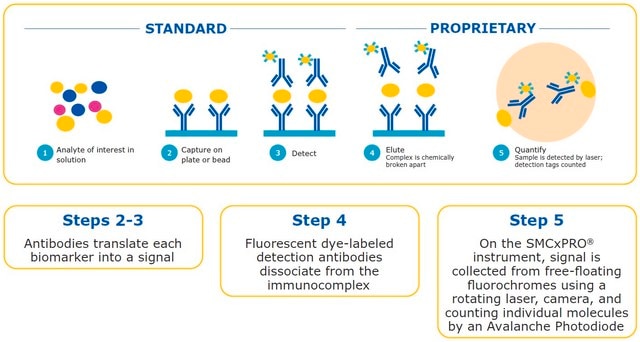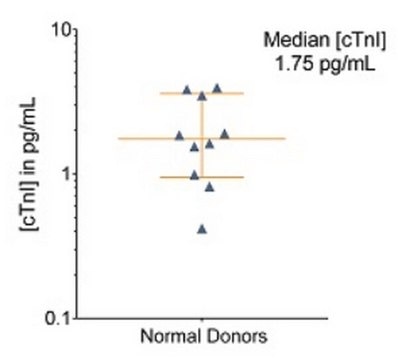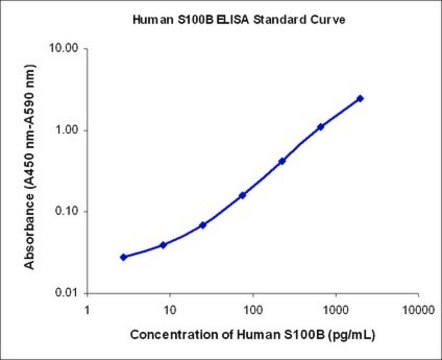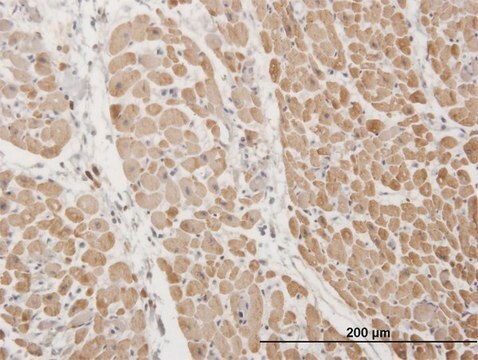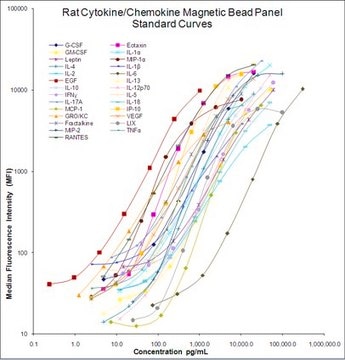03-0154-00
SMC® Human cTNi High Sensitivity Kit
1 kit sufficient for 96 wells, input: serum, plasma
Synonym(s):
Cardiac Muscle Troponin I immunoassay kit, Cardiac Troponin I immunoassay kit, cTnI Single Molecule Counting Kit, cTnI ultra-sensitive immunoassay
About This Item
Recommended Products
usage
kit sufficient for 96 wells
species reactivity
human, rat, mouse, canine, nonhuman primates, equine
manufacturer/tradename
SMC®
assay range
sensitivity: 0.35 pg/mL
(lower limit of quantification)
inter-assay cv: <20%
intra-assay cv: <15%
standard curve range: 0.17-600 pg/mL
technique(s)
ELISA: suitable
single molecule counting: suitable
input
serum
plasma
compatibility
for use with SMCxPRO® and Erenna<TMSYMBOL></TMSYMBOL> (validated)
shipped in
wet ice
storage temp.
2-8°C
Related Categories
General description
Assay protocols are similar to existing sandwich ELISA methods with two key differences:
1) Elution buffer disrupts the sandwich, separating the labeled detection antibody for quantification.
2)The Erenna and SMCxPRO® immunoassay systems detect analytes using Single Molecule Counting (SMC®) technology.
Specificity
Legal Information
Disclaimer
signalword
Danger
Hazard Classifications
Acute Tox. 3 Dermal - Acute Tox. 4 Inhalation - Acute Tox. 4 Oral - Aquatic Chronic 3 - Eye Irrit. 2 - Repr. 1B
Storage Class
6.1C - Combustible, acute toxic Cat.3 / toxic compounds or compounds which causing chronic effects
wgk_germany
WGK 3
Certificates of Analysis (COA)
Search for Certificates of Analysis (COA) by entering the products Lot/Batch Number. Lot and Batch Numbers can be found on a product’s label following the words ‘Lot’ or ‘Batch’.
Already Own This Product?
Find documentation for the products that you have recently purchased in the Document Library.
Related Content
Cardiotoxicity biomarkers like cardiac troponin I (cTnI) in serum samples can be detected earlier with the ultrasensitive biomarker detection SMC® immunoassay platform. Discover the utility of Single Molecule Counting (SMC®) technology for the early assessment of heart muscle injury in rats.
Our team of scientists has experience in all areas of research including Life Science, Material Science, Chemical Synthesis, Chromatography, Analytical and many others.
Contact Technical Service